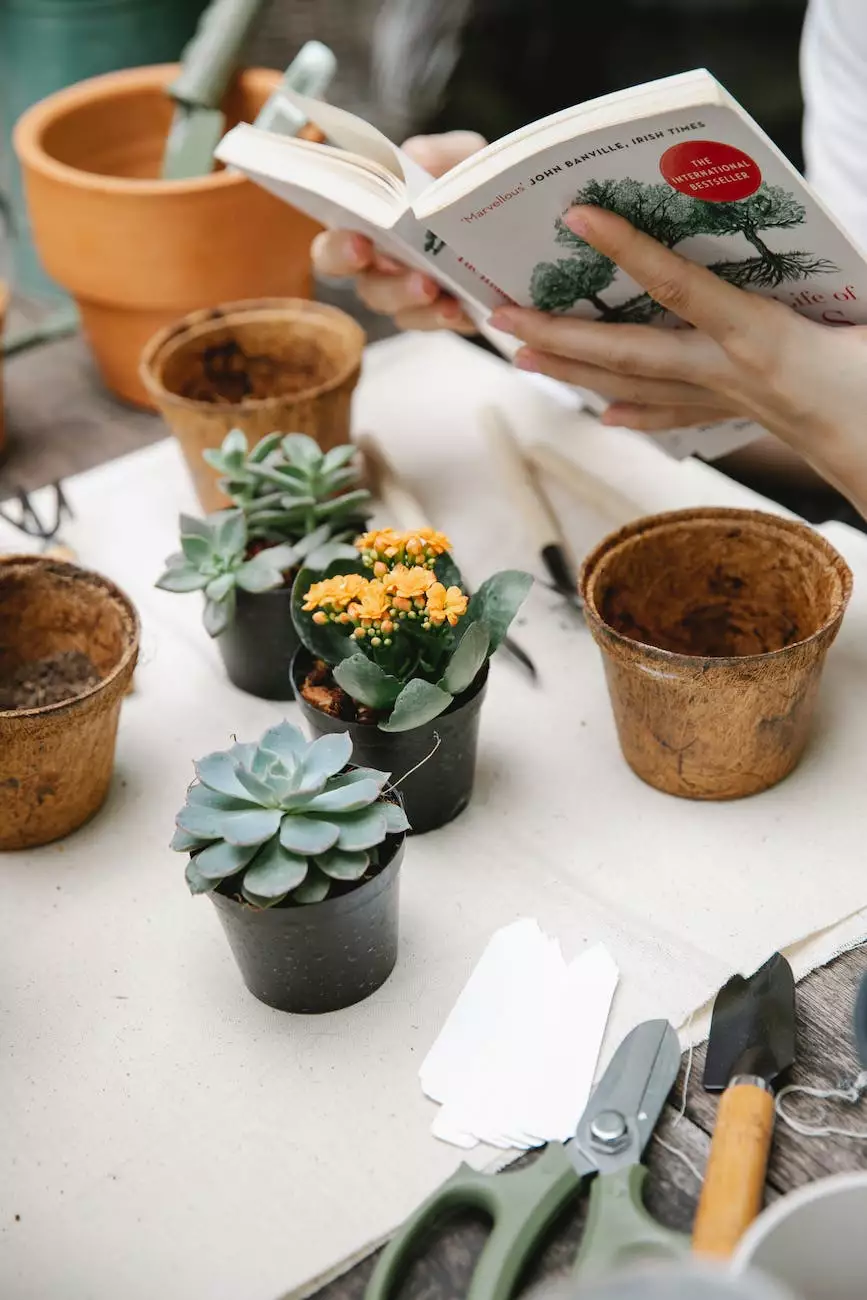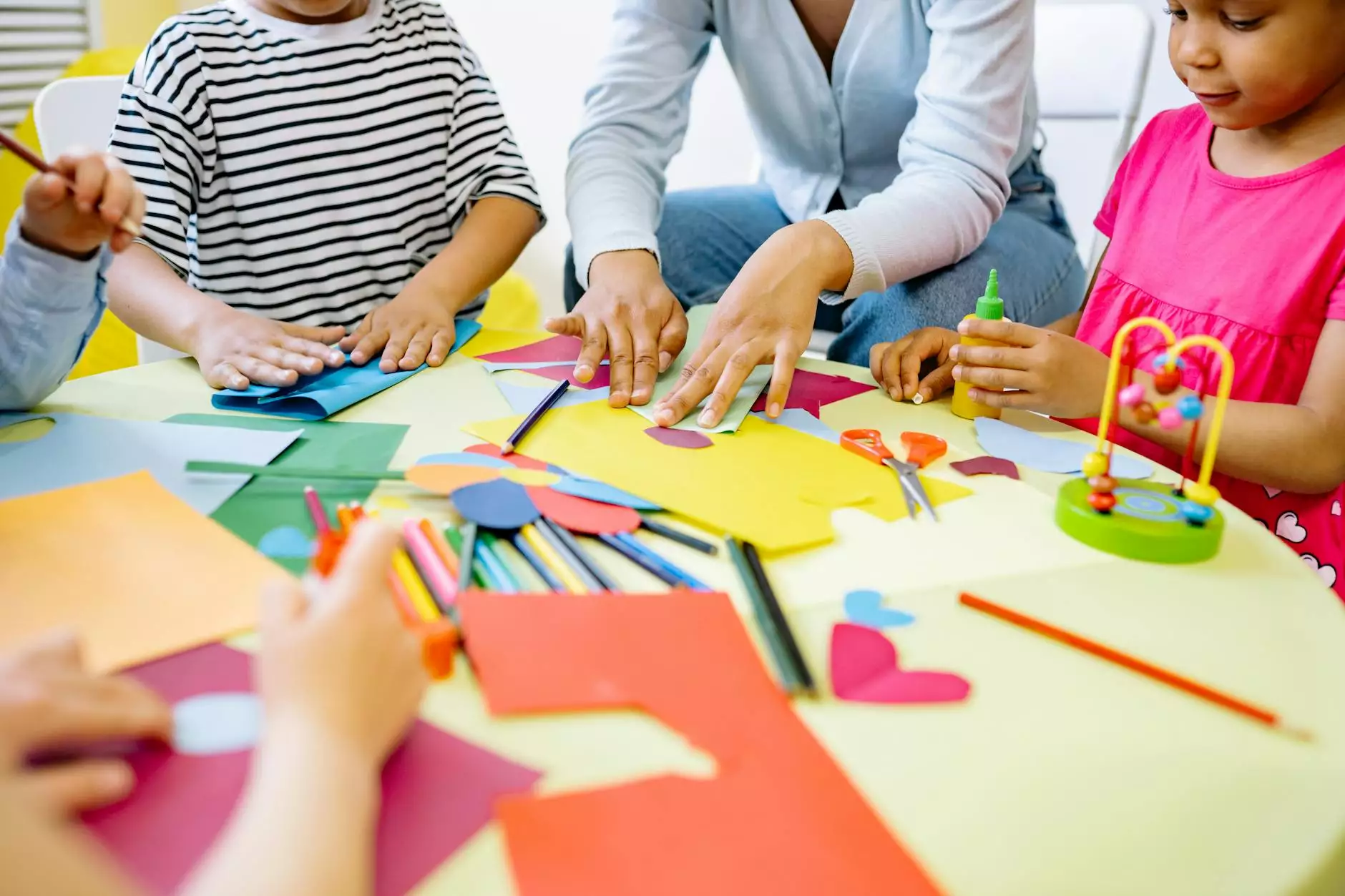Growing Language in the Garden

Introduction
Welcome to The Knowledge Nest's comprehensive guide on growing language skills in the garden. As we strive to create an inclusive community and promote learning in various domains, we believe that the combination of language development and the wonders of nature brings forth a unique and enriching experience for children and adults alike.
The Importance of Language Development
Language development plays a pivotal role in our lives and is crucial for effective communication, learning, and social interaction. By encouraging language growth in a natural and engaging environment, such as the garden, we can provide individuals with a holistic learning experience that nurtures their verbal and written skills.
Creating Language-Rich Environments
In order to foster language development in the garden, it is essential to create language-rich environments that stimulate curiosity and engagement. Here are some practical steps you can take:
1. Labeling Plants and Objects
By labeling plants, tools, and various objects in the garden, you expose learners to new vocabulary and encourage them to ask questions and explore. This interactive approach not only enhances language acquisition but also deepens their understanding of the natural world.
2. Storytelling and Role-Playing
Immerse yourself in the power of storytelling and role-playing by incorporating garden-related themes. Encourage children to create their own narratives, acting out scenes and utilizing descriptive language. This imaginative play not only promotes linguistic skills but also fosters creativity and critical thinking.
3. Engaging in Conversations
The garden offers a plethora of opportunities for meaningful discussions. Encourage learners to discuss their observations, share their thoughts, and ask questions about the plants, insects, and natural phenomena they encounter. Engaging in conversations will strengthen their communication abilities and boost their confidence in articulating ideas.
Language Development Activities in the Garden
To maximize language development, here are some engaging activities you can incorporate in your garden-oriented learning:
1. Plant Identification
Take your language skills to new heights by engaging in plant identification activities. Use visual aids and descriptive language to teach children or learners about different plants, flowers, and trees. Encourage them to seek out the specific branches, leaves, and patterns you describe, enriching their vocabulary and understanding of the botanical world.
2. Journaling
Encourage learners to keep garden journals where they can document their discoveries, thoughts, and feelings. Journaling not only cultivates writing skills but also allows individuals to reflect on their experiences, fostering introspection and self-expression.
3. Garden Scavenger Hunts
Organize garden scavenger hunts that require participants to find and gather various items, such as different types of leaves, seeds, or insects. Incorporate descriptive language clues and encourage collaboration and communication among participants, enhancing their vocabulary, teamwork, and problem-solving skills.
The Benefits of Growing Language in the Garden
Growing language skills in the garden offers numerous benefits that extend beyond linguistic development. Some key advantages include:
1. Enhanced Vocabulary Acquisition
Through exposure to a wide range of plant names, gardening terms, and descriptive language, individuals can expand their vocabulary significantly.
2. Connection with the Natural World
The garden serves as a gateway to nature, connecting learners with the natural world and fostering a sense of environmental awareness and appreciation.
3. Multi-Sensory Learning Opportunities
The garden provides multi-sensory learning experiences, allowing individuals to engage their senses, such as touch, smell, and sight, while improving their language skills.
4. Social and Emotional Growth
Engaging in language-rich activities in a garden setting promotes social interaction, collaboration, and emotional growth as individuals share their experiences and thoughts.
Conclusion
At The Knowledge Nest, we firmly believe in the power of language development and the transformative potential of the garden. By combining these elements, we open doors to new perspectives, deeper understanding, and a lifelong love for both language and nature. Join us on this enriching journey as we grow language in the garden.
© 2022 The Knowledge Nest | Community and Society | Visit our website










